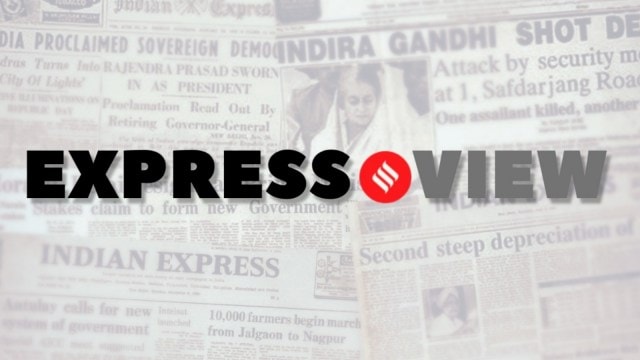
The Israeli government claims its attack on Iran is “pre-emptive”, that it is intended to neutralise Tehran’s ability to develop a nuclear bomb. That claim does not stand the test of international law — Israel’s aggression is a violation of it. It also thumbed its nose at the Trump administration — the only nuclear-armed state in West Asia began its offensive just days before the US and Iran were due to resume the sixth round of negotiations around the latter’s efforts to develop nuclear weapons. US intelligence assessments have reportedly concluded that Iran, which is retaliating with ballistic missiles aimed at Israel, was “years” away from achieving nuclear strike capability. Israel has been bombing military and governmental installations, while also carrying out a string of assassinations — of nuclear scientists, and also of senior Iranian military officers. Five days into the conflict, it is becoming increasingly apparent that Israel’s objective is regime change.
The closest Israeli Prime Minister Benjamin Netanyahu has come to admitting this was in a recent interview to a US TV channel, where he said that regime change “could certainly be the result because the Iran regime is very weak”. Netanyahu has appealed to the “proud people of Iran” to rise up for their “freedom from an evil and repressive regime”. The exhortation is ominous. Time and again, regime change orchestrated or forced upon countries by foreign powers has led to disastrous consequences — political instability, protracted violence, and the collapse of state institutions. From Iraq under Saddam Hussein to Libya under Muammar Gaddafi, and the eventual return of the Taliban in Afghanistan, recent history is replete with cautionary tales. There are serious questions about the legitimacy of the Ali Khamenei regime — the 2022 protests following the death of Mahsa Amini were a clear signal of its growing unpopularity. Yet it is hard to imagine that the Iranian people would be galvanised to align themselves with a foreign power that is bombing their territory.
What unfolds next will also largely depend on how the US chooses to navigate this crisis. The 2015 Joint Comprehensive Plan of Action (JCPOA), signed under Barack Obama, arguably curtailed Iran’s nuclear ambitions more effectively than any military campaign could. That deal was unilaterally abandoned by President Donald Trump, prompting Iran to gradually renege on its commitments. Today, Trump shows little inclination to press Netanyahu for a ceasefire — even as he himself has acknowledged receiving signals from Iran seeking de-escalation. His early exit from the G7 summit, ostensibly to focus on “something bigger”, adds to the uncertainty. As the world waits, global powers must urgently press Israel to work towards a ceasefire, open spaces for diplomacy. If not, an entrenched regime in Tehran, weakened post October 7, will be further pushed against the wall by a Tel Aviv that has arrogated to itself a free pass making peace all the more elusive.